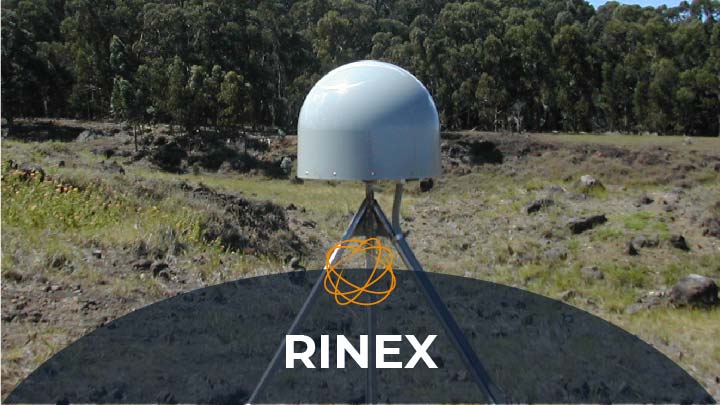RINEX Committee
Established: 2011
Acting Chair: Francesco Gini (ESA)
Formats and Standards: RINEX Formats and Standards
Mailing List: IGS RINEX Committee Mailing List
Charter
The IGS/RTCM Receiver INdependent EXchange (RINEX) Committee was established in December of 2011 to update and maintain the RINEX format to meet the needs of the IGS and the GNSS Industry. Since the RINEX format is widely used by the GNSS scientific community and industry it was decided that it should be jointly managed by the IGS and the Radio Technical Commission for Maritime Services – Special committee 104 (RTCM-SC104). In this way the Committee consists of IGS scientific and institutional members and RTCM-SC104 industry members. Document approval will follow the IGS/RTCM-SC104 consensus-based approach and majority voting will be used if a consensus cannot be reached in a reasonable amount of time.
RINEX documents will continue to be freely distributed both by the IGS and RTCM-SC104.
As a result of the limitations of the previous RINEX formats, RINEX 4 was created in 2021 to provide generic and systematic support for all GNSS constellations, signals and observations. Given the needs of both the IGS and GNSS communities and the strengths of RINEX 4, all stations are encouraged to use RINEX 4 for their data submissions.
RINEX 3.05 was the last versions of the RINEX 3 format supported by the IGS/RTCM. While the previous versions can be used for station data files according to the local needs and requirements, they will not be evolved further. File submissions in these formats should be limited to cases of older equipment not supporting RINEX 4 file generation, to support specific application programs, and/or for parallel storage during a station’s transition phase.
Finally, the RINEX Committee together with the IGS Real-Time Committee will ensure that the GNSS station data stream formats, RTCM, remain fully consistent with the RINEX standard. Ensuring that full accuracy RINEX files can always be written from GNSS receiver data streams.
RINEX Committee Goals
- Continue to update RINEX to support both operational and new navigation satellite systems based on their latest signal-in-space ICDs.
- Actively coordinate with the IGS Real-Time Committee, IGS Infrastructure Committee, and the RTCM group to ensure the station data remain fully consistent with RINEX.
- Communicate the goals, objectives, new releases and achievements of the RINEX Committee to the GNSS communities through the established emails lists, forums, conferences, etc.
- Encourage suggestions and improvements from the GNSS users to the RINEX standard to accommodate the GNSS community data storage needs.
- Conduct RINEX Committee meetings and teleconferences with the membership as needed.
- Ensure attendance of a RINEX Committee representative to RTCM, IGS, and any other meeting or forum where our expertise is required.
[Revised Dec 2023]
Members
| Name | Institution | Country/Region | |||
|---|---|---|---|---|---|
| D. Stoecker | Alberding | Germany | |||
| A. Boriskin | Ashtech | Russia | |||
| D. Kozlov | Ashtech | Russia | |||
| H. Honghe | BeiDou Off. | China | |||
| A. Stuerze | BKG | Germany | |||
| E. Wiesensarter | BKG | Germany | |||
| I. Romero | CSC (@ESA/ESOC) | Germany | |||
| A. Hauschild | DLR | Germany | |||
| T. Noack | DLR | Germany | |||
| O. Montenbruck | DLR | Germany | |||
| P. Steigenberger | DLR | Germany | |||
| F. Gini (Acting Chair) | ESA/ESOC | Germany | |||
| A. Bagge | Geo++ | Germany | |||
| G. Wuebbena | Geo++ | Germany | |||
| M. Schmitz | Geo++ | Germany | |||
| M. Bradke | GFZ | Germany | |||
| T. Nischan | GFZ | Germany | |||
| S. Kawamoto | GSI | Japan | |||
| T. Richert | Hexagon | Switzerland | |||
| U. Rossbach | IFEN | Germany | |||
| R. Khachikyan | IGS CB | USA | |||
| H. J. Euler | Inposition | Switzerland | |||
| V. Zhukov | Javad | Russia | |||
| S. Yudanov | Javad | Russia | |||
| O. Tubalin | Javad | Russia | |||
| V. Udintsev | Javad | Russia | |||
| K. Kaori | JAXA | Japan | |||
| M. Miyoshi | JAXA | Japan | |||
| F. Pache | Leica Geo. | Switzerland | |||
| F. Takac | Leica Geo. | Switzerland | |||
| H. Rui | Mitsubishi | Japan | |||
| P . Kopcha | NGA | USA | |||
| S. Hilla | NGS | USA | |||
| B. Stressler | NGS | USA | |||
| A.M. Solberg | NMA | Norway | |||
| A. Brathen | NMA | Norway | |||
| C. Ellum | Novatel | Canada | |||
| G. Roesler | Novatel | Canada | |||
| P. Alves | Novatel | Canada | |||
| M. Schmidt | NRCan | Canada | |||
| A. Zinoviev | NTLab | Russia | |||
| G. Weber | NTRIP | Germany | |||
| T. Springer | PosiTim (@ESA/ESOC) | Germany | |||
| R. Snow | RTCM | USA | |||
| J. M. Sleewaegen | Septentrio | Belgium | |||
| T. Willems | Septentrio | Belgium | |||
| J. Sass | Spectra | USA | |||
| T. Stansell | Stansell C | USA | |||
| E. Brockmann | Swiss Topo | Switzerland | |||
| L. Agrotis | Symban (@ESA/ESOC) | Germany | |||
| D. Kolosov | Topcon | Russia | |||
| I. Artushkin | Trimble | Russia | |||
| G. Lu | Trimble | USA | |||
| R. Dach | U of Bern | Switzerland | |||
| B. Renfro | U of Texas | USA | |||
| L. Hui | Wuhan U. | China | |||
| S. Han | Wuhan U. | China |
[Revised Dec 2020]
FORMATS
| RINEX v. 4.02 | RINEX 4.02 (2024) is an upgrade of the format document that introduces the pico-second resolution to the observations time tagging, as well as new navigation messages for NavIC L1 and GLONASS L1 and L3 CDMA. In addition, navigation messages subtypes have been introduced, to support dual ION models available for the QZSS and NavIC systems. Additional editorial changes have been introduced to improve clarity. |
| RINEX v. 4.01 | RINEX 4.01 (2022) is an upgrade of the format document that introduces new observation codes for GPS in L1 and L2 to cover the future (Block IIIF) RMP antenna navigation signal transmissions using the M code as well as it adds the L1 Observation codes for the NavIC constellation, together with other, mostly editorial, changes. |
| RINEX v. 4.00 | RINEX 4.00 (2021) is a major revision of the format document to modernize the Navigation message files to be able to accommodate the new navigation messages from all the GNSS constellations, and system data messages such as; ionospheric corrections, earth orientation parameters and system time offsets. The Observation file format remains the same with some added QZSS signals and tracking codes to fully support the upcoming L1 C/B signal. The Meteo file format also remains the same. All RINEX file types also have new optional header lines to support FAIR data usage; Finding, Accessible, Interoperable and Reusable data. |
| RINEX v. 3.05 | RINEX 3.05 (2020) is a major restructure and revision of the format document to make it clearer and easier to read, it adds BeiDou signals and tracking codes to fully support BDS-2 and BDS-3, and it also adds missing flags and values to the GLONASS navigation messages. |
| RINEX v. 3.04 | The RINEX 3.04 release supports all publicly available signals from the US: GPS, Russia: GLONASS, Europe: Galileo, China: BeiDou, Japan: Quasi Zenith Satellite System (QZSS) and the Indian Regional Navigation Satellite System (IRNSS) constellations. RINEX 3.04 contains updates to support planned GLONASS CDMA signals, new BeiDou III and QZSS II signals. In addition to the new signals, the RINEX 3.04 text has been edited to improve the description of messages, fields and overall readability. |
| RINEX v. 3.03 | August 2015 release notes |
| RINEX v. 3.02 | Enhanced 3.01 to include: a new header message to specify the GLONASS code-phase bias; the existing GLONASS frequency to slot header message has been specified as mandatory and a new RINEX file naming convention |
| RINEX v. 3.01 | GPS, GLONASS, Galileo, BeiDou (Compass), QZSS and SBAS, however, structure of the data record has changed significantly with the addition to detailed characterization of actual signal generation |
| RINEX 3 Long Filename Creation | The RINEX 3 format defines a new naming scheme for the files. The new names are longer and more descriptive allowing more information to be self-explanatory from the name. |
| RINEX v. 2.11-A | *Rinex 2.11 format definition addendum authorizing and encouraging the use of gzip compression as approved by the IGS-RTCM RINEX Working Group and the IGS Infrastructure Committee |
| RINEX v. 2.11 | GPS, GLONASS and Galileo observations, meteorological data, and navigation files. Additionally, the C2, L2C/L5 and Galileo codes have also been introduced |
| RINEX v. 2.10 | GPS and GLONASS observations, meteorological data, and navigation files |
| GEO SBAS | RINEX-type Exchange File for GEO SBAS Broadcast Data |
| Hatanaka compact RINEX | GPS and GLONASS observations |
RINEX WG Feedback
RINEX News
Last Updated on 15 Oct 2024 16:19 UTC


